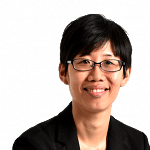LANZHOU (Gansu) • China has transformed tremendously in the past 40 years since it opened up to the world and, as it grows, South-east Asian countries, including Singapore, will have to adapt and adjust to a new China, Deputy Prime Minister Teo Chee Hean said yesterday.
Likewise, China too will have to adapt to the rest of the world and South-east Asia, he added.
"We cannot approach China in the same way we approached China 30 years ago, nor can China approach the rest of the world and South-east Asia the same way... it did 30 years ago," Mr Teo told Singapore media in an interview.
China "fully realises" that "respect for a large, powerful country comes not from how much you show your power but how you use your power in a restrained way with consideration for friends and neighbours and to put that power to the good of the world community and the regional community", he added.
Mr Teo recalled his first visit to China in 1984, when it had just begun its journey of reforms and opening up. "The lives of the Chinese have been uplifted beyond the imagination of the Chinese people and the Chinese leaders themselves, within these 40 short years," he observed. This is a positive outcome for China as well as South-east Asia and the world as it represents a new growth engine.
The economic opportunities, for example, have changed dramatically. The world's No. 2 economy is now a net exporter of foreign direct investments and this has "enormous implications". A case in point is the Belt and Road Initiative (BRI), Mr Teo noted.
"This can have a very positive effect in improving infrastructure all over the Belt and Road countries, creating greater market opportunities, and fostering economic development in all those countries," he added.
During his nine-day working visit, Mr Teo visited six provinces and covered 7,000km, including a 2,700km stretch from Qinzhou in Guangxi to inland Lanzhou in north-western Gansu over the Southern Transport Corridor (STC), a new trade route that brings goods from China's western regions via a network of railways to the Beibu Gulf (Gulf of Tonkin) to Singapore and beyond.
Mr Teo also met first-ranking Vice-Premier Han Zheng and five other members of the Politburo, as well as local leaders in northern Tianjin, southern Guangxi, south-western Chongqing and north-western Qinghai and Gansu provinces.
He praised the Chongqing Connectivity Initiative (CCI), the latest Singapore-China government project, saying it has "exceeded expectations".
"The CCI, coupled with the STC, will open up a whole new vista for our relations with China."
Both countries are set to formalise a memorandum of understanding on the STC at the next Joint Council for Bilateral Cooperation meeting, which will be held in Singapore in September, he said.
Accompanying Mr Teo on the trip were three senior parliamentary secretaries: Mr Baey Yam Keng, Ms Sun Xueling and Mr Tan Wu Meng. Ms Sun told reporters the Chinese local leaders' confidence in and enthusiasm for the BRI impressed her the most. "They each saw their own value-add to the process… and what I was very heartened to see was that they saw Singapore as a partner in the process," she said.
Chong Koh Ping

